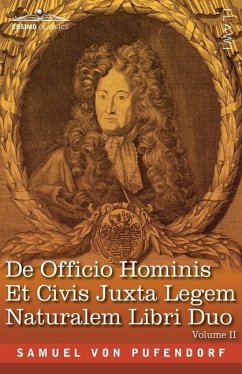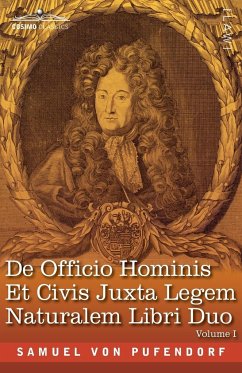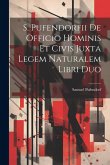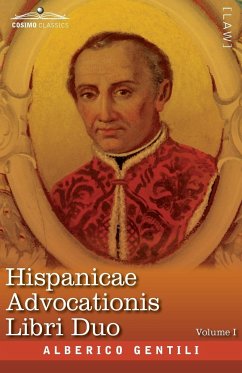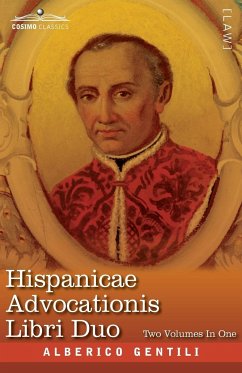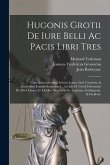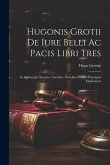"Any man must, inasmuch as he can, cultivate and maintain toward others a peaceable sociality that is consistent with the native character and end of humankind in general." -Samuel von Pufendorf, The Two Books on the Duty of Man and Citizen According to the Natural Law (1927) De Officio Hominis Et Civis Juxta Legem Naturalem Libri Duo, Volume II (1927), originally published in 1673, contains the English translation by Frank Gardner Moore, The Two Books on the Duty of Man and Citizen According to the Natural Law and is a replica of the 1927 edition. Also available from Cosimo Classics are Volume I with the original Latin text and a comprehensive two-volume edition in Latin and English. The ideas presented in the book synthesize the theories of Grotius and Hobbes, and the author delves into multiple facets of the laws of nature and nations. These and other foundational concepts of international law are covered in-depth in this must-have for legal scholars and those intrigued by the history of law.
Hinweis: Dieser Artikel kann nur an eine deutsche Lieferadresse ausgeliefert werden.
Hinweis: Dieser Artikel kann nur an eine deutsche Lieferadresse ausgeliefert werden.

